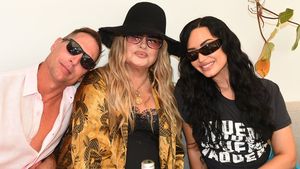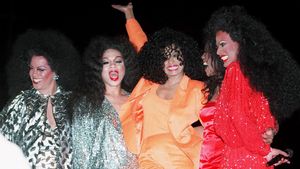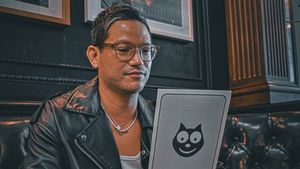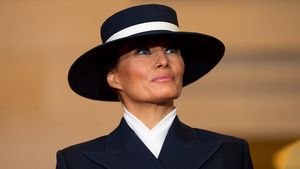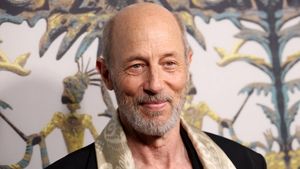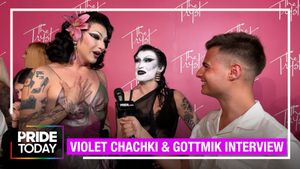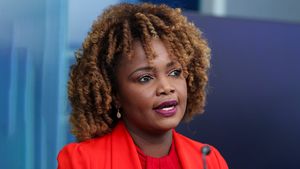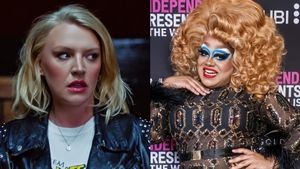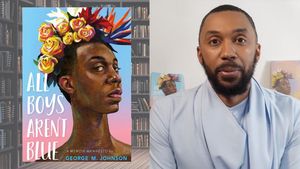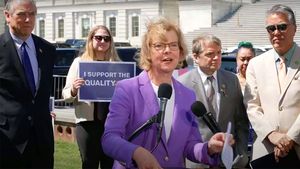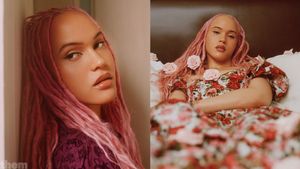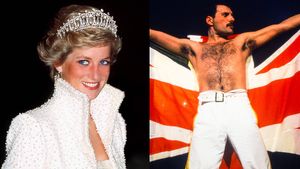Today is International Women's Day and Grammy-Award-winning singer-songwriter JoJo reflected on her twenty years in the music industry in a moving letter for the third annual Be The Change: Gender Equality Study.
JoJo entered the industry in 2003 with her hit song "Leave (Get Out)" and followed it up with "Too Little Too Late". Though she instantly became a cultural phenomenon all those years ago, her career was quickly snatched away when her label, Blackground Records, went under and trapped her in a contract that prohibited her from releasing music commercially for over a decade.
Today, JoJo is free from that contract and has released two more critically acclaimed albums, but that didn't come without a price – and her own struggles with mental health. And if the industry is unhealthy for women, like JoJo points out in the letter, imagine the struggle for LGBTQ+ individuals.
Read it in full below:
"Change is possible when we reflect, learn and then choose to grow. There’s a hopefulness found in refusing to let history repeat itself. Next year, I'll be celebrating my 20-year anniversary in the music industry as a public figure, a journey that started when I was a young teenager. When I reflect on that time, I realize it’s hard for me to separate the formation of my identity as an adult woman from my identity as an artist. And while those blurry lines come from both external and internal influences, I've recently wondered if my male peers consider themselves 'male artists.' My suspicion is that the term is not as ubiquitous for them as the term 'female artist' is for myself and my fellow women in music, whether in the press, in business meetings, or in the studio.
My hunch surrounding this issue rings true when I look at the data in the enclosed research. When I read that over 60% of industry professionals and creators have struggled with their mental health since working in the music industry, and that among women and gender expansive individuals that statistic climbs to 76% for women, 82% for transgender individuals, and 89% for those who are nonbinary, it’s clear this is a pervasive issue. As someone who has been quite open about my own mental health journey, both in interviews and in my music, having this kind of information helps me to understand one of the many underlying roots of these issues. Although these issues are definitely not something I blame on or attribute to my gender exclusively, it's helpful to recognize that attitudes towards and expectations of women can exacerbate the harder times. Many of us women have been conditioned under antiquated pressure, more so than our male counterparts, to be seen as 'perfect.' As 'female artists,' some of us were handed down preconceived expectations of sitting in hair and make-up for hours before a public appearance. If we don't 'look right,' that could become the narrative, taking attention away from the project we’re promoting or dominating conceptions surrounding our stories or abilities. I know from personal experience and shared anecdotes within the industry that male peers can spend less than half the time as females getting ready for a public appearance, which can often free up more time for creativity or productivity in their business ventures.
As women, it can sometimes seem that we are constantly climbing an uphill battle to feel good enough and to prove our worthiness. We are often pitted against other women and picked apart mercilessly on the internet by passionate strangers. Recently, P!nk released an amazing new album, but instead of highlighting that in her promotion, the headline that media outlets ran with was a new tidbit of a story from 20-years ago, a conflict between her and Christina Aguilera that has long been resolved. P!nk, being the badass she is, called it out directly for what it is: gender inequality in the way women and men are treated by the media and in general. If we don’t call out the discrepancies ourselves, will it continue to be more of the same? I’m encouraged when I see the younger generation of artists coming out the gate with an individualistic approach to what it means to look, dress, and act like a woman. There's a collective refusal to accept or engage with this long-standing girl-against-girl rhetoric. That stuff is old. Challenging the former norms is now the standard. And I love to see it.
The history of our industry does not have to be a vision of its future. By continuing to conduct studies like this to educate our peers on our diverse experiences, and providing actionable ways to lend a helping hand to one another in the face of gender-based discrimination, we can reshape the face of music. We can work together, all of us, to create a more equitable, representative, and inclusive industry, where people of all backgrounds, sexualities, and gender identities are granted the same opportunities for success, from the stage to the studio to the board room. We each have a part to play to make that vision a reality. We all have to take daily action to combat gender-based discrimination and let it be known that inclusivity is necessary for our industry to thrive. We all have to be the change."
What age did JoJo leave?
JoJo was 13-years-old when she released her debut single, "Leave (Get Out)".
What was JoJo biggest hit?
"Too Little Too Late" is her biggest hit and peaked at #3 on the Hot 100 in 2006.
Who is JoJo engaged to?
JoJo was engaged to actor Dexter Darden but their relationship has seemingly ended after she shared a cryptic Instagram post about "lying" and rings switching fingers late last year.
From Your Site Articles
Related Articles Around the Web















































